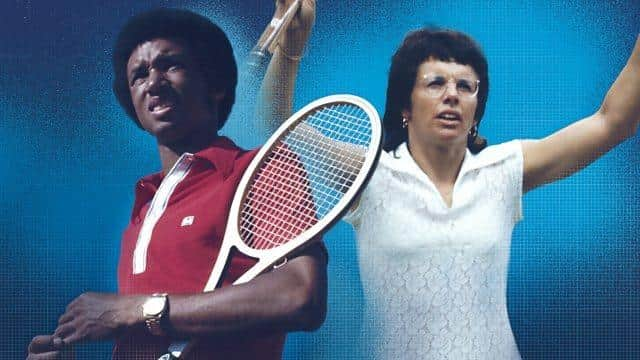Gods of Tennis brings real-life stories of the most iconic tennis players
and live on Freeview channel 276
The 1970s and 80s was a golden era for tennis, as legendary athletes exhilarated audiences of millions at a time when changes in the modern world were also being played out on court.
This follow-up to Gods of Snooker brings real-life stories of the most iconic tennis players of the time to the screen, with the sporting geniuses serving up first-hand accounts of the seminal moments in their careers.
Advertisement
Hide AdAdvertisement
Hide AdAlongside personal insights, this distinctive period is brought back to life through rich archive as global events like the Cold war, the sexual revolution, race relations and the fight for LGBTQ rights found expression in the game’s most traditional sporting arena.


In future weeks, we will see how crowds flocked to see two tennis superstars face off against each other in the 1981 Wimbledon men’s singles final.
The rivalry between sex-symbol Bjorn Borg and tabloid bad-boy John McEnroe was the fiercest the men’s game has ever seen.
Later, in 1990, Martina Navratilova – Czech-born but representing the USA – was viewed with suspicion by the American public.
Advertisement
Hide AdAdvertisement
Hide AdShe locked horns with her famous rival Chris Evert, seen as America’s sporting sweetheart.
However, tonight’s first edition focuses on two tennis greats – Billie Jean King and Arthur Ashe – who, in 1975 were are both aiming to win Wimbledon titles but also, in their own ways, change the world for the better.
Back in the late 1960s, as the women’s liberation movement became headline news, Billie Jean took up the gauntlet for female competitors in sport.
Having dominated the women’s game for years, winning several Wimbledon Championships, she was spearheading the drive for equal prize money and equal treatment.
Advertisement
Hide AdAdvertisement
Hide AdThen, in 1973, Bobby Riggs, former world No 1 and a self-confessed chauvinist, goaded Billie Jean into playing him in what the promoters dub ‘The Battle of the Sexes’.
Rigg’s outrageous sexist comments in the build-up help made this one of the most watched sporting events ever and announces her fight for parity in tennis prize money to the wider world.
Arthur Ashe is also using tennis as a vehicle for political activism and, in 1973, he becomes the first black American to play in the South African Open, taking the fight directly to the heart of the apartheid regime.
However, despite fighting his own battle for equality, Ashe didn’t always see eye to eye with King, dismissing her fight for equal pay and instead headed up a movement to wrestle power away from the tennis authorities, leading a boycott of Wimbledon.
Advertisement
Hide AdAdvertisement
Hide AdWith retirement looming in 1975, Billie Jean wanted to bow out of Wimbledon as one of the greatest tennis players in history by attempting to win it for a sixth time.
Meanwhile, Arthur reaches the Wimbledon men’s singles final with the opportunity to become the first black man to win the Championship.
His last-minute decision to change his natural game in the final against Jimmy Connors surprises everyone and leads to one of the most important and thrilling matches in tennis history.
Among the contributors are Billie Jean herself, as well as Johnnie Ashe (Arthur’s brother), McEnroe, Evert, Navratilova, Sue Barker, Clare Balding, Sir Trevor McDonald and Arthur’s friend, author Mark Mathabane.